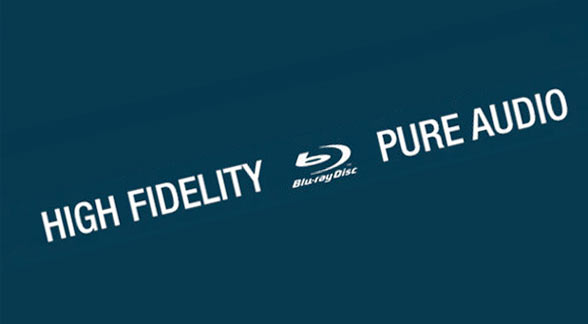Another BD Music Format?
This morning I read that yet another physical “high fidelity” music-only format has entered the marketplace. Some weeks ago, I wrote a short piece on the efforts of msm studios in Berlin to push their “proprietary” format (which is nothing more than a standard Blu-ray disc that utilizes the colored buttons to avoid the requirement to a video monitor to navigate the discs) called Pure Audio Blu-ray. Last month Universal Music Group launched a web site called hifipureaudio.com, which is offering a select group of Blu-ray music-only discs in France.
The discs contain three copies of the original 2.0 channel stereo program coded as 96 kHz/24-bits, DTS HD Master Audio or Dolby TrueHD. Users can also download CD quality FLAC or 320 kbps MP3 files from the site with a code included with the packaging of the discs.
So does this format breath new life into music-only physical discs. Do you think consumers will flock to the concept of buying yet another version of their favorite albums in the BD format? As I said previously, I don’t think so. The time for better quality physical discs (as SA-CDs, DVD-Audio or BD) has passed. We’ve moved on to better quality digital downloads, as long as we stay with PCM encoded transfers done well.
There was an interesting sentence in the piece that stated, “Some purists noted that, while 24bit/96khz is an undeniable achievement, it is still a sampling process, whereas SACD with its Direct Stream Digital (DSD) is closer to the analogue signal of a vinyl.” It seems an uninformed DSD advocate got their two cents into the article. That someone actually believes and would publish that DSD is not a sampling process is amazing! It is and is no closer to the “signal” of vinyl than HD-Audio encoded using PCM. I can only applaud Universal for not reverting back to SA-CD as a “high fidelity” physical format.
My argument with these music-only Blu-ray discs is twofold.
First, the world has moved to downloads one track at a time. At the present time my iTrax.com HD-Audio download site is pretty evenly split between customers that purchase entire albums and those that purchase an individual track. People want the tunes that they enjoy and downloading gives them the option to avoid purchasing more tracks than they want.
Secondly, there isn’t really any benefit from pressing old standard definition masters onto new high definition audio-capable discs. This goes back to the whole “provenance” issue that I’ve discussed previously. By reissuing a classic Rolling Stones sampler from the Universal vault in 96/24, the fidelity of the original master tape defines the level of the new transfer to BD. I would hope that the original masters were actually used during the transfers…but there’s no guarantee of that. Purchasers of the new “high fidelity pure audio Blu-rays might be getting an existing digital file that has been upconverted to “HD”. Who knows?
I’m all about trying to advance the quality of music of any era. And perhaps the Universal Music Group will find success with their approach…although I doubt it. I support Blu-ray for music if the material that is pressed into the pits on the disc is actually newly recorded and has dynamic range and frequencies that are not part of standard definition recordings AND has surround mixes AND has HD-Video AND has other compelling content. As a carrier of “high fidelity” audio…I’ll pass.


Another fascinating article Mark. I think the ‘proprietary’ UMG format is actually an AES standard? See http://www.aes.org/standards/blog/2009/8/aes-x188 and http://www.aes.org/standards/meetings/init-projects/aes-x188-init.cfm. A copy of the completed standard is online: http://www.opusproductions.com/pdfs/AES-21id_PureAudioBDDisc.pdf
The question of whether recorded music consumers value physical packages (vs downloads) is interesting, and not necessarily going to end up at zero, just because we are experiencing a trend away from near 100%. *Especially* with audiophiles as opposed to mp3-downloading kids. Audiophiles (we) are a weird bunch, often more like collectors and hoarders and with semi-religious attachments to favourite ‘paths to nirvana’. Don’t expect them to lose the attributes that made them audiophiles in the first place: attributes that tend to meld the music and the objects that reproduce it into a whole. Objects that include the ‘parcels of stored music’. Did I say it’s weird? 😉